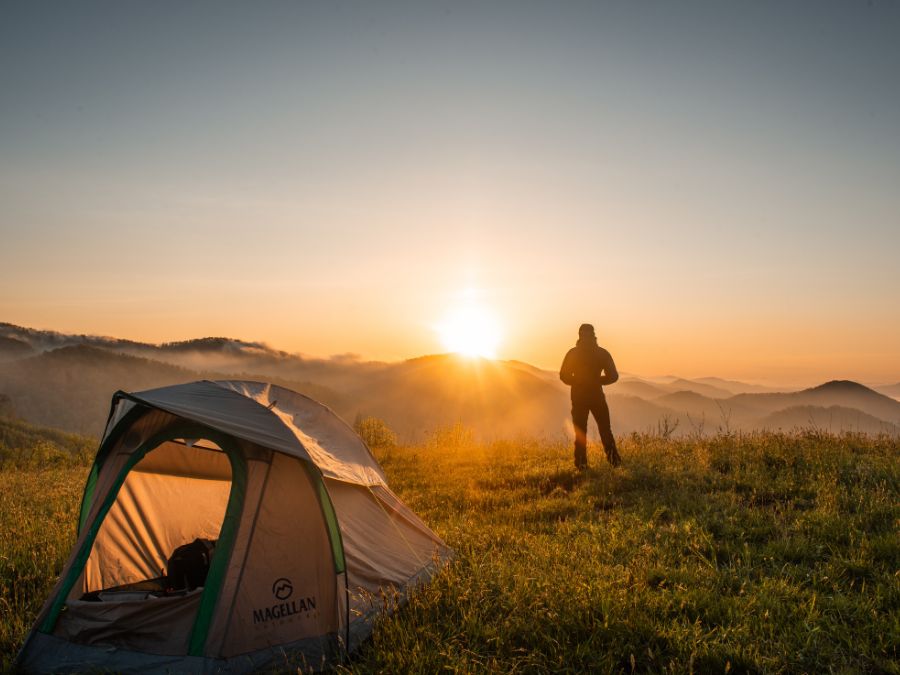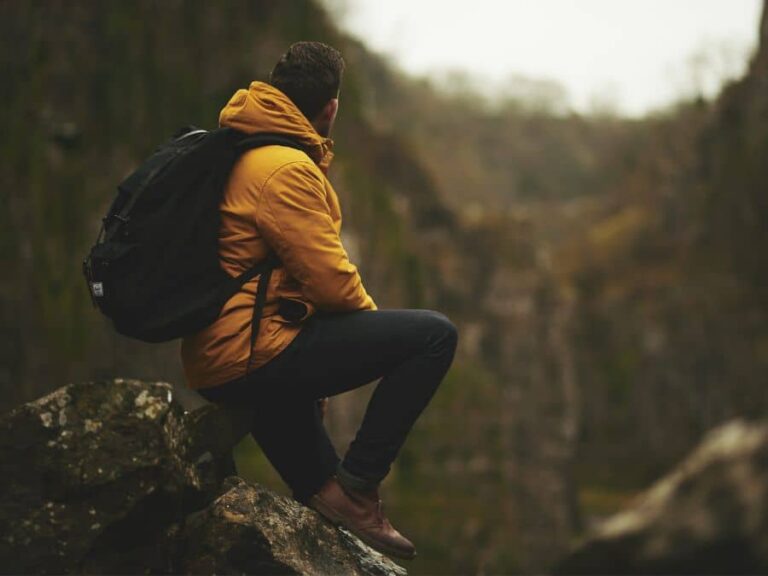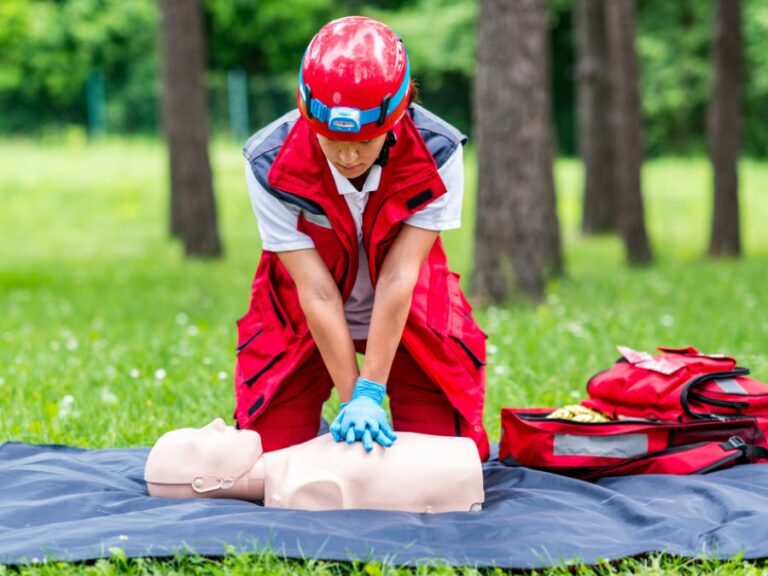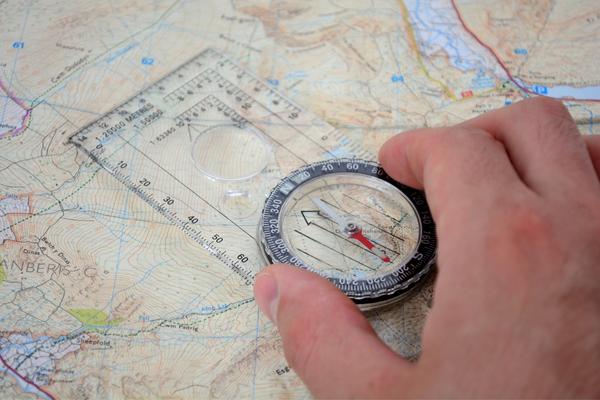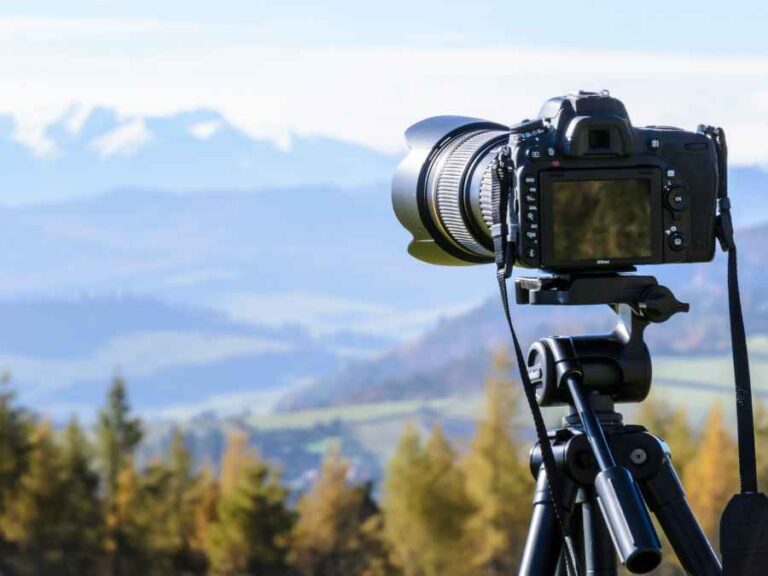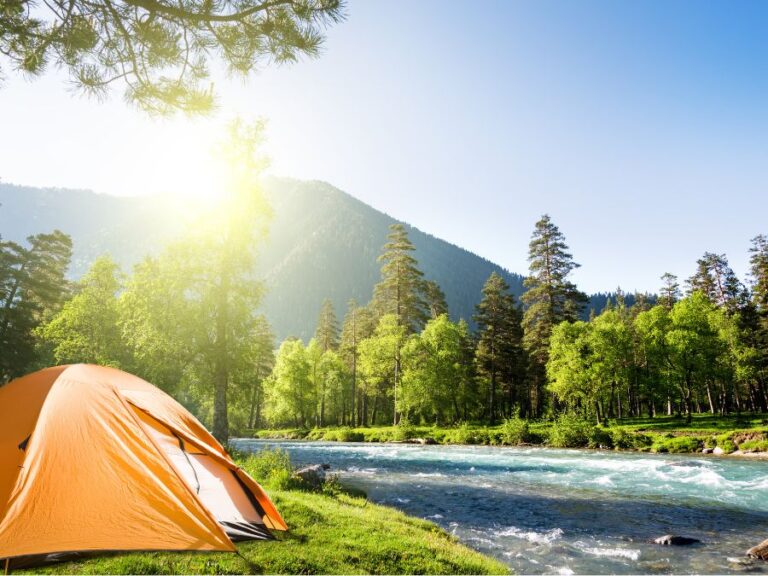Nature’s Rx: The Transformative Power of Camping and Backpacking on Mental Health
Brief Overview of the Topic
Nature has a way of healing us, both physically and mentally. It’s no secret that spending time in nature can make us feel good, but did you know that it can have a huge impact on our mental health as well? Whether you’re camping in the woods, backpacking through the mountains, or simply taking a walk in the park, being surrounded by nature has been proven to reduce stress levels and improve overall well-being.
Importance of Mental Health and Well-being
In today’s fast-paced world, we often neglect our mental health in favor of productivity. But mental health is just as important as physical health, if not more so. A healthy mind is essential for leading a happy life and achieving our goals.
Unfortunately, many people struggle with mental health issues such as anxiety and depression. This is where nature therapy comes in.
By spending time in nature, we can calm our minds and recharge our batteries. The benefits are numerous: reduced stress levels, improved mood, better sleep quality – just to name a few.
And what better way to immerse oneself in nature than by camping or backpacking? These activities offer a unique opportunity to escape from the hustle and bustle of everyday life and connect with ourselves on a deeper level.
So if you’re struggling with your mental health or simply looking for a way to unwind, consider trying camping or backpacking as a form of self-care. In the following sections, we’ll explore exactly how these activities can benefit your mental health – along with tips for making the most out of your outdoor adventure!
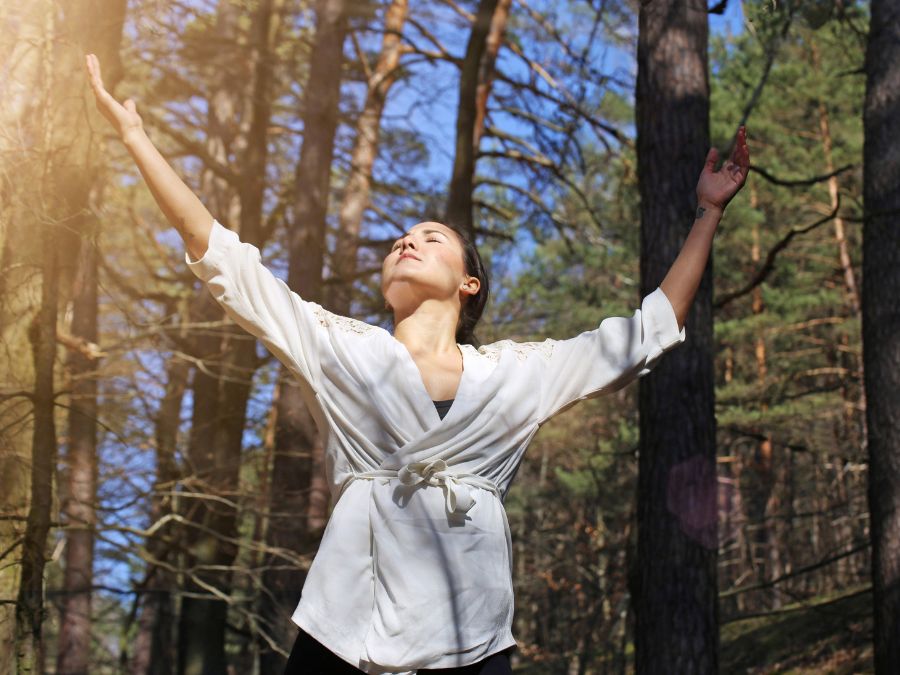
The Science of Nature Therapy
Explaining Nature Therapy and Its Benefits
Nature therapy, also known as ecotherapy or green therapy, is a holistic approach to improving mental health through exposure to nature. It involves spending time in natural settings such as forests, mountains, bodies of water, or even just a park.
The goal of nature therapy is to improve well-being through physical activity and immersion in natural environments. The practice has been around since the early 1800s and has gained popularity over the years due to its positive impact on mental health.
One major benefit of nature therapy is that it can reduce stress levels. Studies have shown that simply being in nature can lower cortisol levels – the hormone responsible for stress response – which leads to a decrease in anxiety and depression symptoms.
Being surrounded by trees, waterfalls, and wildlife can provide a sense of peace and tranquility that can help calm an overwhelmed mind. Another benefit is that it may improve cognitive function.
Being outdoors enhances creativity, problem-solving skills, and memory retention. Engaging with natural environments stimulates the brain in unique ways compared to urban living spaces or indoor locations.
Studies and Research on the Effects of Nature on Mental Health
Numerous studies have been conducted on the effects of nature on mental health. A study published in Environmental Health and Preventive Medicine found that forest bathing (spending time walking or sitting down among trees) reduced feelings of hostility towards oneself while increasing overall mood states such as vigor.
Another study by researchers at Stanford University found that taking walks in nature could lead to decreases in rumination (repetitive negative thought patterns), which are often associated with depression and anxiety disorders. A review of research published in Frontiers in Psychology concluded that exposure to natural environments can lead to decreased symptoms for individuals suffering from conditions such as ADHD, dementia, depression, anxiety disorders, PTSD, and more.
Overall, the scientific evidence suggests that nature therapy is an effective method to improve mental health and well-being. The next section will explore how camping and backpacking can be used as tools for nature therapy.

Camping: A Gateway to Nature Therapy
Benefits of camping for mental health
Camping is a great way to escape the hustle and bustle of everyday life and connect with nature. But did you know that it can also have a significant positive impact on your mental health? Studies have shown that spending time in nature can reduce stress, anxiety, and depression.
Camping in particular has been linked to improved mood, better sleep quality, and increased feelings of happiness. One reason for this is that camping allows you to unplug from technology and reconnect with the natural world.
When we spend too much time on our phones or computers, we can become disconnected from our surroundings and ourselves. Camping provides an opportunity to slow down, be present in the moment, and appreciate the beauty of nature.
Types of camping (car camping, glamping, backpacking)
Camping comes in many different forms, each with their own unique benefits. Car camping involves driving your car right up to your campsite and setting up camp there. This type of camping is great for families or those who prefer a more comfortable experience – you can pack more gear without having to carry it all on your back!
Glamping takes things a step further by providing luxurious accommodations like king-sized beds or electricity in your tent. This is perfect for those who want to experience the great outdoors without sacrificing comfort.
Backpacking involves carrying all of your gear on your back as you hike through remote wilderness areas. This type of camping requires more planning and preparation but offers unparalleled access to beautiful natural areas where few people venture.
Tips for a successful camping trip
To ensure a successful camping trip there are several key things to keep in mind: – Plan ahead: Research campgrounds or hiking trails ahead of time so you know what amenities are available.
– Pack appropriately: Bring appropriate gear for the type of camping you’re doing, including clothing layers, food, and water. – Leave no trace: Practice “leave no trace” principles by packing out all trash and minimizing impact on the environment.
– Embrace the experience: Try new things like cooking over a campfire or stargazing at night. Remember that camping is about enjoying nature and experiencing something different than your everyday life.
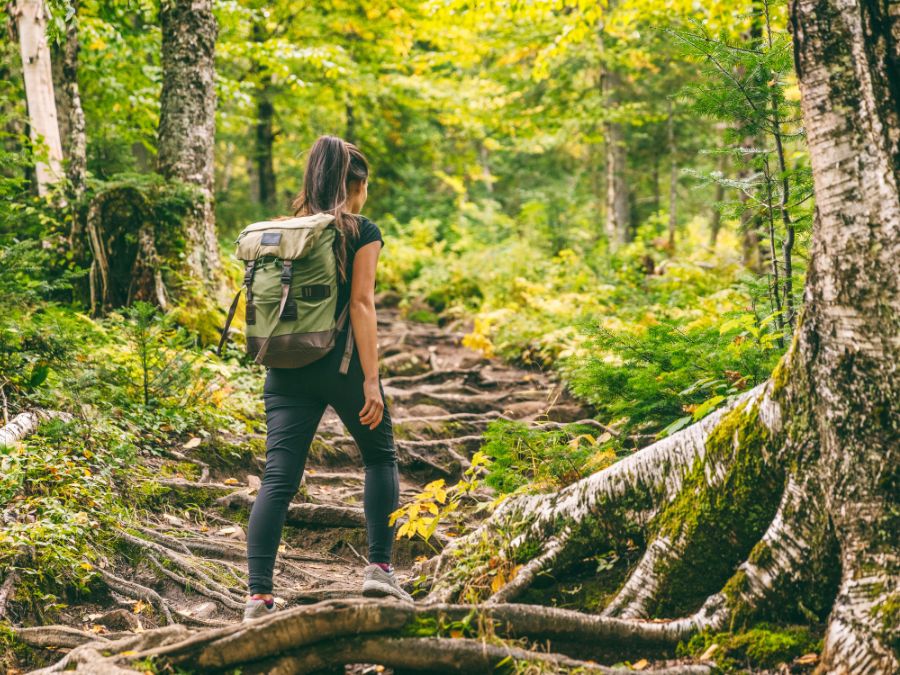
Backpacking: A Deeper Dive into Nature Therapy
Difference between backpacking and camping
While camping often involves pulling up in a car and pitching a tent nearby, backpacking is a deeper dive into nature. Backpackers carry all their gear on their backs, hiking to remote locations and spending several days or more in the wilderness. This means that backpackers have to be self-sufficient, carrying everything they need: shelter, food, water, clothing and supplies for cooking.
The experience of backpacking is often more intimate with nature because it requires more physical exertion and independence than camping. Backpackers are often rewarded with breathtaking views and serene moments that are rarely accessible through other forms of outdoor recreation.
Mental health benefits unique to backpacking
Backpacking has been shown to provide mental health benefits beyond those found in traditional camping experiences. One of the most significant advantages of backcountry hiking is the opportunity for total immersion with nature. The quiet solitude of being miles from civilization allows hikers to tune out distractions and connect with their surroundings.
Moreover, several studies have shown that spending time in nature can reduce stress hormones such as cortisol while increasing feel-good hormones like serotonin. The sensory experience of being unplugged from technology while surrounded by fresh air can also promote relaxation and improve sleep quality.
Preparing for a backpacking trip
Going on a successful backpacking trip requires careful planning, preparation and knowledge about how to stay safe while in the wilderness. It’s crucial to research your destination ahead of time—know when it’s best to go there, what permits you need (if any), what kind of terrain you’ll encounter—and choose your route accordingly.
In addition to proper planning around your destination, it’s essential to pack appropriately for your journey. You’ll need comfortable shoes or boots suitable for hiking on rough terrain; a backpack with enough space to carry all your gear; appropriate clothing for the climate you’ll be in, layers are key; water filtration or purification system; and a map and compass or GPS device.
All in all, backpacking is an excellent way to get off the beaten path and find peace of mind. Whether you’re looking for adventure or solitude, backcountry hiking is an empowering experience that can help restore balance to your life.
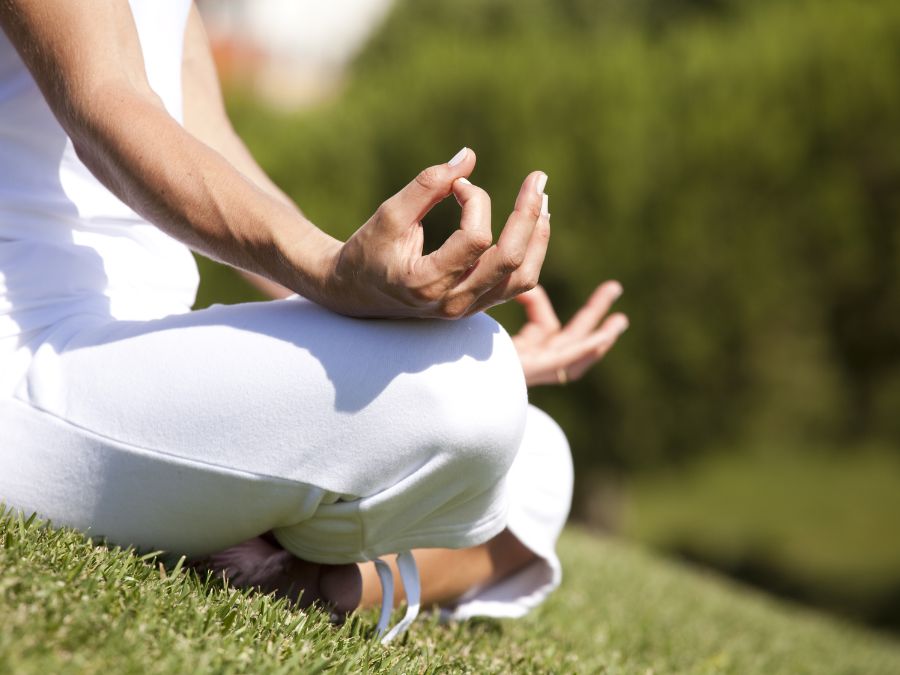
Mindfulness in Nature: Techniques for Enhancing Mental Health Benefits
Mindfulness practices while camping or backpacking
Being present in the moment is an essential part of mindfulness, and what better way to achieve this than through connecting with nature while camping or backpacking. One simple practice that can be done anywhere, anytime, is to take a few deep breaths and focus on the sensation of air entering and leaving your body. While out in nature, try expanding your awareness to the sounds, smells, and sights around you.
Take note of any thoughts or sensations that come up without judgment. Another way to practice mindfulness while camping or backpacking is by going on a mindful walk.
Simply choose a path or trail and walk slowly and deliberately, paying attention to each step you take. Observe the environment around you with all your senses without getting caught up in thoughts about what’s ahead.
Connecting with nature through meditation and yoga
Meditation can be practiced anywhere but doing it in nature adds an extra layer of peace and calmness. Find a quiet spot under a tree or beside a stream where you won’t be disturbed for 5-10 minutes.
Sit comfortably with your eyes closed, focusing on your breath as it flows in and out. When thoughts arise (as they inevitably will), simply observe them without getting caught up in them.
Yoga is another great way to connect with nature while simultaneously practicing mindfulness. You don’t need any equipment other than yourself, so it’s perfect for camping trips where space may be limited.
Try sun salutations at sunrise for an energizing start to your day or wind down before bed with some gentle stretches under the stars. Incorporating these practices into your camping or backpacking trip can enhance the mental health benefits of being out in nature even more by allowing you to fully immerse yourself in the experience.
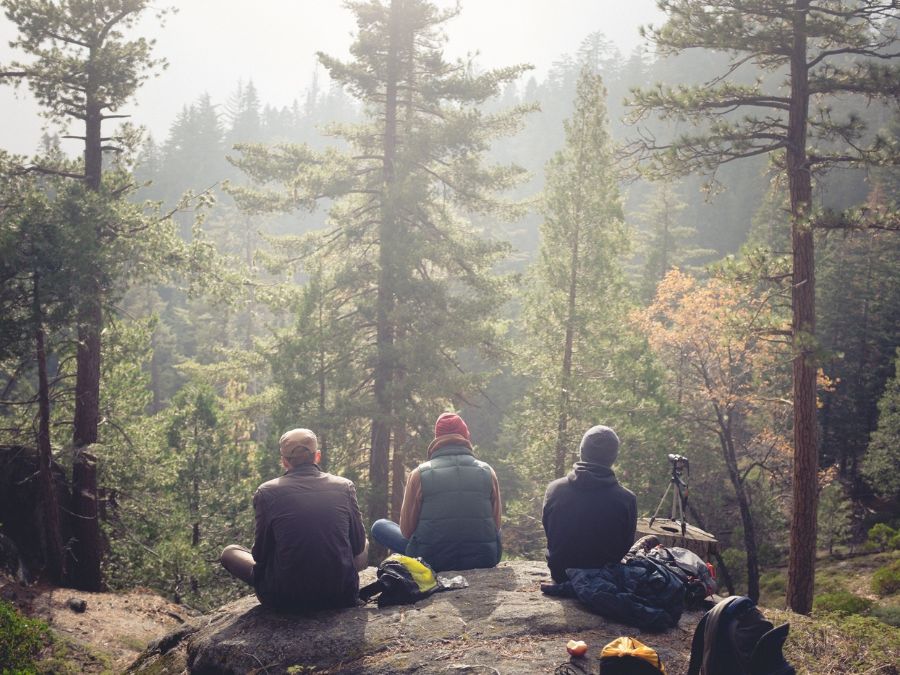
The Healing Power of Adventure: Pushing Your Limits in Nature
Adventure activities in nature (hiking, rock climbing, kayaking)
If camping and backpacking aren’t enough to satisfy your thirst for adventure, there are plenty of other outdoor activities that you can try out as well. Hiking is a great way to explore nature while also providing exercise and fresh air. Choose a trail that challenges you physically, but also allows you to take in the sights and connect with nature.
Rock climbing is another adventure activity that can be incredibly rewarding for mental health. Climbing requires focus, planning, and physical exertion – all factors that have been linked to improved mood and self-esteem.
Plus, the views from the top are pretty amazing too! For those who want to get out on the water, kayaking is an excellent option.
Paddling along a river or lake can be calming and meditative while also providing an upper body workout. You can choose between serene routes or more challenging rapids depending on your skill level.
How adventure can improve mental health
Pushing yourself outside of your comfort zone through adventurous activities has been shown to have numerous benefits for mental health. Firstly, it allows you to disconnect from the stresses of everyday life by immersing yourself in nature – something that has been shown time and again to reduce anxiety levels.
Secondly, pushing yourself physically through adventurous activities releases endorphins – chemicals in the brain that trigger positive feelings and reduce pain perception. This rush of endorphins leads to an increased sense of well-being long after the activity is over.
Taking on challenges like hiking or rock climbing can improve confidence levels by proving your ability to overcome obstacles both mentally and physically. This sense of accomplishment translates into other areas of life as well – giving people who engage in adventure sports a sense of empowerment over their lives.
So, while camping and backpacking offer incredible mental health benefits on their own, adding in adventure activities can take it to the next level. Whether it’s hiking, rock climbing or kayaking, there’s a way for everyone to get outside and find their next adventure.
Conclusion
Recap of the Benefits of Nature Therapy for Mental Health
Nature therapy is a powerful tool for improving mental health. Studies show that spending time in nature can lower stress levels, reduce anxiety and depression symptoms, and improve overall well-being. Whether you prefer car camping or backpacking through remote wilderness areas, there are many ways to incorporate nature into your self-care routine.
Camping allows you to disconnect from the chaos of daily life and reconnect with the natural world. It offers the opportunity to breathe fresh air, listen to birds sing, and watch sunsets over stunning vistas.
Backpacking takes this a step further by immersing you in the wilderness for days at a time. You carry everything you need on your back, testing your physical abilities while enjoying the beauty of unspoiled landscapes.
Encouragement to Try Camping or Backpacking as a Form of Self-Care
If you’re feeling stressed out or struggling with mental health issues, we encourage you to try camping or backpacking as a form of self-care. Even if you’ve never spent a night outdoors before, there are options available that can make your experience comfortable and enjoyable. Consider renting an RV or cabin at a nearby state park if traditional camping isn’t your thing.
Or take baby steps by starting with car camping at a local campground before venturing into more remote areas. There are also many guided backpacking trips available that provide all necessary gear and instruction.
Nature has an incredible ability to soothe our minds and heal our spirits. By incorporating nature therapy into your self-care routine through camping or backpacking, you can experience these benefits for yourself while enjoying all that the great outdoors has to offer.

